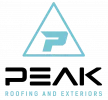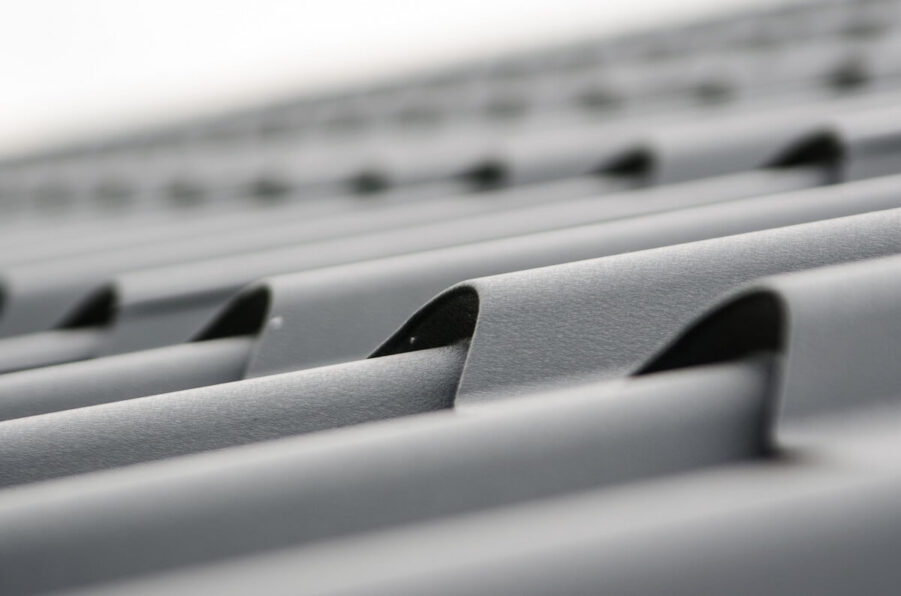Metal roofing has gained significant popularity in recent years due to its durability, energy efficiency, and aesthetic appeal. As an alternative to traditional roofing materials like asphalt shingles or tiles, metal roofs offer a range of benefits. However, like any roofing material, they also come with potential drawbacks. To give you some insight into this, look at the pros and cons of metal roofs when considering this roofing option.
Pros of Metal Roofs
The benefits of a metal roof are numerous. From energy efficiency to durability and fire resistance, the advantages far outweigh the constraints.
Longevity and Durability
One of the key advantages of metal roofing is its exceptional lifespan. When properly installed and maintained, metal roofs can last 50 years or more, surpassing the lifespan of many other roofing materials. They are resistant to rot, decay, and insect damage, providing long-term durability.
Excellent Weather Resistance
Metal roofs are highly resistant to extreme weather conditions, including heavy rain, snow, hail, and high winds. They have a high strength-to-weight ratio, making them resistant to impact and preventing cracks or breakage. Metal roofs also have excellent water-shedding capabilities, reducing the risk of leaks.
Energy Efficiency
Metal roofs can significantly reduce energy costs. They have reflective properties that help reflect solar heat, keeping the interior of the building cooler in warm climates. This reduces the reliance on air conditioning, resulting in lower energy consumption and cost savings over time.
Fire Resistance
Metal roofs are non-combustible, offering excellent fire resistance. This can be especially advantageous in areas prone to wildfires or regions with strict fire safety regulations. Metal roofs do not ignite or contribute to the spread of fire, providing added peace of mind for homeowners.
Low Maintenance
Compared to other roofing materials, metal roofs require minimal maintenance. They are resistant to mold, mildew, and algae growth. Metal roofs do not rot or deteriorate over time, reducing the need for frequent repairs. Occasional inspections and basic cleaning are usually sufficient to keep metal roofs in good condition.
Environmentally Friendly
Metal roofs are considered environmentally friendly due to their long lifespan, recyclability, and energy efficiency. They often contain a high percentage of recycled content and can be fully recycled at the end of their lifespan. Metal roofs can also be installed over existing roofs, reducing waste from old roofing materials.
Cons of Metal Roofs
While there are a few disadvantages to installing a metal roof, professional roofers can mitigate most problems using industry-standard materials and procedures.
Higher Initial Cost
One of the primary drawbacks of metal roofs is their higher initial cost compared to traditional roofing materials. The cost of materials, installation, and specialized labor can make metal roofs a more significant investment upfront. However, it’s important to consider the long-term benefits and potential savings in energy costs and maintenance.
Noise Concerns
Rainfall or other precipitation on a metal roof can create more noise compared to other roofing materials. However, this can be mitigated by using proper insulation, underlayment, and attic space design. Additionally, the noise level varies depending on factors such as the roof’s structure, insulation, and surrounding environment.
Denting and Scratching
While metal roofs are highly durable, certain types of metal, such as aluminum or copper, can be susceptible to denting and scratching. Hailstorms, falling branches, or heavy foot traffic on the roof can potentially cause dents or scratches. However, modern metal roofing systems are designed to be more resistant to these issues.
Expansion and Contraction
Metal roofs can expand and contract with temperature fluctuations. Over time, this movement can loosen fasteners or create gaps that may lead to water penetration. Proper installation techniques and the use of expansion joints can help mitigate this issue, but it’s crucial to work with experienced professionals.
Compatibility with Rooftop Installations
When installing a metal roof, certain considerations must be taken into account when incorporating skylights, satellite dishes, or other rooftop penetrations. These additions can have implications for the installation process and the overall performance of the roof. Here are some unique insights into how skylights or satellite dishes can affect a metal roof installation:
- Skylights – Skylights add natural light and aesthetic appeal to a space, but their integration with a metal roof requires careful planning. The flashing around the skylight must be properly sealed to prevent water leakage. It is essential to select compatible materials that can withstand the expansion and contraction rates of both the metal roof and the skylight. Working with an experienced contractor who understands the specific requirements of integrating skylights with metal roofs is crucial to ensure a watertight and secure installation.
- Satellite Dishes – Installing a satellite dish on a metal roof can present challenges due to the need for proper support and weatherproofing. The weight of the dish must be distributed evenly to avoid structural damage to the roof. Specialized mounting brackets or standoffs are typically used to secure the dish without compromising the integrity of the roof. Additionally, it is important to seal the mounting points effectively to prevent water penetration. Careful coordination between the satellite dish installer and the roofing contractor is necessary to ensure that the metal roof’s performance and warranty are not compromised.
In both cases, it is crucial to consult with professionals who have experience in integrating skylights or satellite dishes with metal roofs. They can provide expert guidance on proper installation techniques, compatible materials, and necessary reinforcements to maintain the functionality and longevity of the roof while accommodating these additional features.
Metal roofs offer numerous benefits, including longevity, durability, energy efficiency, and fire resistance. They require minimal maintenance and are environmentally friendly. However, homeowners should consider the higher initial cost, potential noise concerns, and the need for proper installation techniques to address expansion and contraction. Denting and scratching can be a concern, although modern metal roofing systems are designed to minimize these issues. Overall, metal roofs are an excellent choice for homeowners seeking a durable, energy-efficient, and aesthetically pleasing roofing solution. Careful evaluation of individual needs, climate, budget, and long-term goals will help homeowners determine if a metal roof is the right fit for their home.
Peak Roofing & Exteriors
If you’re looking for an honest and experienced team that can handle your metal roofing project in West Texas or Northern Louisiana, look no further. Peak Roofing & Exteriors can take care of your home or business with quality and integrity. Contact us today and book a FREE inspection!

